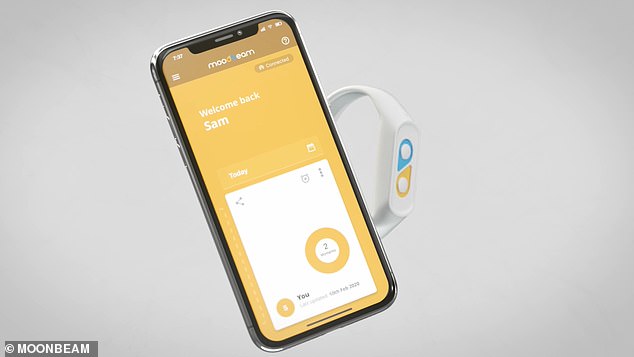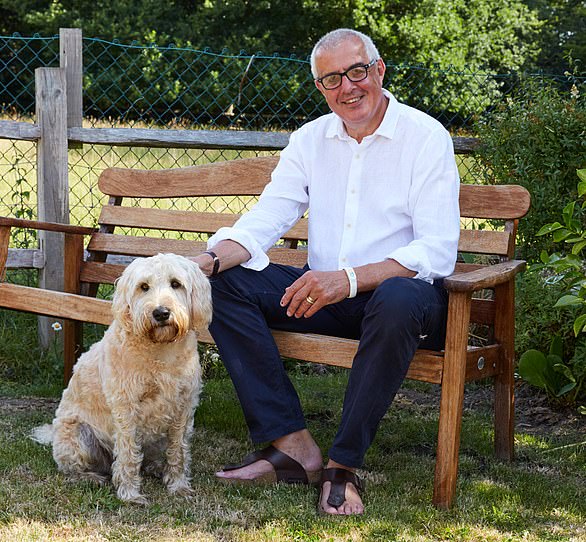Wristband that tracks your emotional state lets bosses monitor employees' wellbeing in lockdown
A £50 wristband created by a British health technology firm is helping people track the wellbeing of their friends, family and employees in lockdown.
Moodbeam features two buttons that the wearer simply has to press throughout the day depending on their mood – yellow for happy and blue for unhappy.
This is logged alongside both sleep and activity and is available for other people to view on an associated app.
It means users can view the moods of their loved ones during lockdown on their smartphone and know when to check in with them with a quick message.
Companies could also buy the wristbands in bulk for their employees while they’re working from home and may feel isolated.
Scroll down for video
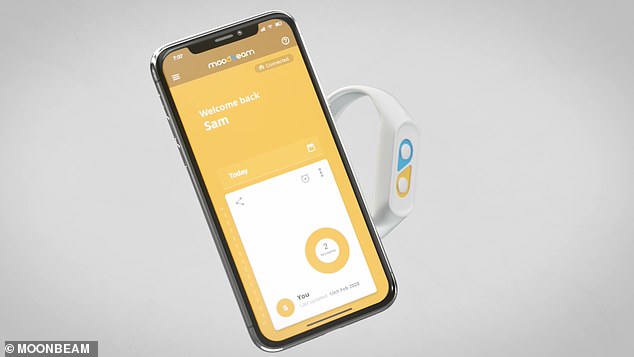
Moodbeam lets users quite literally ‘see how they feel’ on an app that links up with the wristband. Wearers just need to press the blue button on the band if they’re feeling down and yellow if they’re feeling OK
Moodbeam has been created by a Hull-based firm of the same name that formed in 2016, although its solution has become especially relevant as a way to trigger connections during the pandemic and improve mental health.
Experts have already warned of serious mental health issues proliferating around the UK during the third national lockdown.
UK charity Mind also recently revealed its pandemic support page has seen its highest number of visitors since April — when the country was in the grips of the first wave of coronavirus.
‘Knowing how you’re feeling at any one time can be powerful, especially when set against the backdrop of work, rest and play,’ Moodbeam says on its website.
‘The simple act of pressing a button provides deeper insight into what’s going on in the mind of the wearer, be it you or someone you care about who has chosen to share how they’re feeling with you.’
The app presents this information in a clear and understandable way ‘providing a unique insight into the emotional wellbeing of the wearer’.
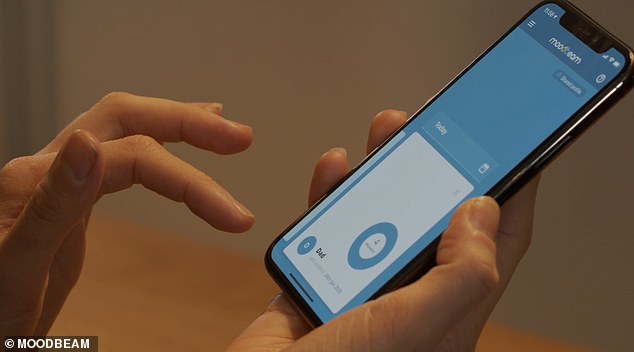
Family members can keep track of how their loved ones are doing during the pandemic with a quick look at the app
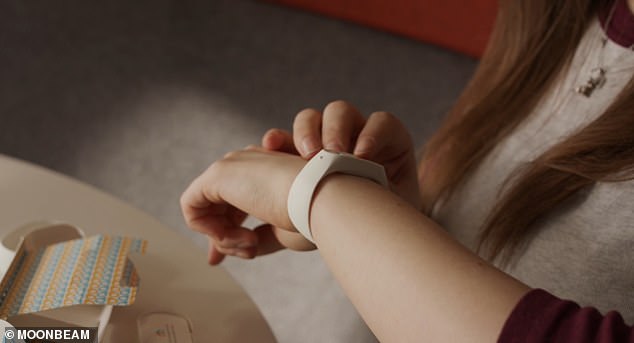
Moodbeam says: ‘With each button press, your mood is logged alongside both sleep and activity. The simple app presents this information in a clear and understandable way providing a unique insight into the emotional wellbeing of the wearer’
Moodbeam may, for example, let someone keep up to date on the wellbeing of a parent who lives hundreds of miles away that they haven’t seen in nearly a year due to the government’s lockdown.
But it could also provide a new solution for professionals – managers could give their team the option to wear a wristband to create an in-app community of workers looking out for each other.
Managers could view an online dashboard to keep tabs on their workers’ mental health, due the current inability to check-in physically with staff.
‘Businesses are trying to get on top of staying connected with staff working from home,’ Moodbeam co-founder Christina Colmer McHugh told the BBC.
‘Here they can ask 500 members: “You OK?” without picking up the phone.’
The app, for both iOS and Android, lets users explore patterns and trends throughout the day, add notes, compare sleep and activity against mood, set mood prompts, as well as choose to share your mood profile with others.
The silicone band, meanwhile, is tough and water resistant, meaning it can be worn while working, walking or showering.
It doesn’t have to be worn around the wrist – it can also be clipped onto work lanyards.
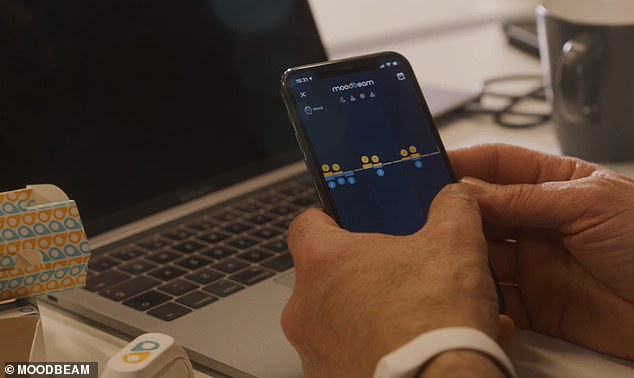
The app is also intended to offer a personal guide of when we feel happy and when we don’t. Moodbeam says: ‘Gain deeper insight into how you feel, and do more of what makes you happy’
The firm was originally founded by Colmer McHugh when her seven-year-old daughter was going through a tough time at school.
She was left wondering what it would be like to know how her daughter was feeling when she wasn’t with her – and realised this was an experience shared by thousands of other parents.
‘It was developed to allow me to get closer to the thoughts and feelings of my daughter as she suffered with anxiety at a young age,’ said Colmer McHugh.
‘There was nothing like this on the market, so it became my mission to create it.
‘We all know that the hardest thing to do when feeling low can be to admit it, so having visual sight of how my daughter was feeling without her having to do that openly acted as a conversation opener – and really helped us to support her fully.’
Moodbeam was launched in 2016 and went on to win the Innovation Partnership Award at the Barclays Entrepreneur Awards in 2019, but since the pandemic it’s been optimised for businesses.
UK mental health charity Brave Mind is one of the organisations using Moodbeam for its own staff.
‘One member of the team was in an uncomfortable place, struggling with a huge workload, and disillusioned with what was going on,’ Brave Mind trustee Paddy Burtt told the BBC.
‘It’s not something he would have flagged up, and we wouldn’t have known about it unless we had seen the data.’
The firm is also working with national framework provider Pagabo to roll out use of the devices on construction sites for staff.
The device is also being used by GP surgeries to support clinical and non-clinical teams and the Mintridge Foundation, a charity dedicated to enhancing life skills in young people.

